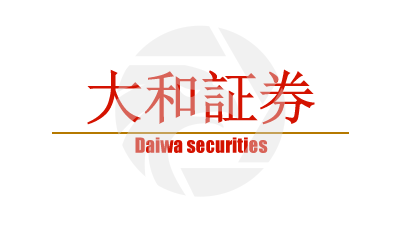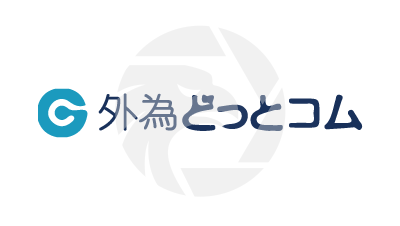SBI
Pros and Cons
Pros
- Regulated by Japan’s FSA
- Diverse trading instruments including stocks and cryptocurrencies
- Trading platforms: MetaTrader 4/5 and proprietary apps
- Zero commission on domestic stock trading
- Strong capital ratio and operational history
Cons
- Limited customer support options (only email contact)
- High withdrawal fees on certain transactions
- Restricted trading instruments (limited to Forex and crypto)
- No support for popular trading platforms like MetaTrader
- Lack of educational resources for beginner traders
Basic Information
User Reviews
SBI Overview
SBI Neotrade Securities Co., Ltd., founded in 2010 and headquartered in Japan, is a regulated forex broker that operates under the oversight of the Financial Services Agency (FSA) of Japan. With a solid regulatory framework in place, SBI provides clients with a trustworthy trading environment. The broker’s commitment to compliance is evident through its Retail Forex License, ensuring that it adheres to stringent regulatory standards, thereby enhancing its credibility in the competitive forex market.
Is SBI Safe? Regulation Analysis
Regulatory Information
| Regulatory Authority | Country/Region | Fund Protection Measures |
|---|---|---|
| Financial Services Agency (FSA) | Japan | Segregated Accounts, Investor Compensation Scheme |
Is SBI Regulated and How Are Client Funds Protected?
SBI Neotrade Securities Co., Ltd is regulated by the Financial Services Agency (FSA) in Japan, which is a recognized financial authority. The broker’s regulatory status ensures that it adheres to strict compliance guidelines that promote investor protection. Client funds are safeguarded through measures such as segregated accounts, which separate client funds from the broker’s operational funds, and an investor compensation scheme that provides additional security in case of broker insolvency. These protections are crucial for enhancing the overall safety of trading with SBI, making it a legit choice for traders looking for a regulated forex broker in Japan. Furthermore, SBI has a long operational history, which adds to its credibility and trustworthiness in the financial services market.
Trading Products and Services
What trading instruments does SBI offer?
| Asset Category | Available Products | Total Count (if available) |
|---|---|---|
| Forex | EUR/USD, GBP/JPY, AUD/NZD | 50+ |
| Commodities | Gold, Silver, Crude Oil | Many |
| Indices | S&P 500, NASDAQ, FTSE 100 | Varies |
| Stocks | Apple, Tesla, BP | 100+ |
| Cryptocurrencies | BTC, ETH, XRP | Many |
SBI offers a diverse range of trading instruments to cater to various trading styles and investment strategies. With a substantial selection in Forex, including major currency pairs, traders can engage in dynamic market movements. Commodities and indices provide additional avenues for those looking to hedge or speculate, while a wide range of stocks allows for individual equity investments. Furthermore, the inclusion of prominent cryptocurrencies enhances the platform’s appeal to tech-savvy investors. This variety not only meets the needs of beginners and seasoned traders alike but also promotes portfolio diversification, essential for effective risk management and flexible trading strategies.
Account Types and Trading Conditions
What Account Types and Fees Does SBI Offer?
| Account Type | Target User Group | Essential Characteristics | Applicability Notes |
|---|---|---|---|
| Retail Account | Beginners and casual traders | Access to various markets, low spreads, and user-friendly interface | Suitable for small-capital trading |
| Professional Account | Experienced traders and institutions | Higher leverage, advanced trading tools, and lower fees | Requires minimum trading volume qualifications |
| Corporate Account | Corporate clients | Customized services, multi-user access, and corporate documentation | Requires corporate registration documents |
| Islamic Account | Traders seeking Sharia-compliant options | Swap-free trading, no interest fees | Requires submission of religious compliance documentation |
| Demo Account | New traders and those wanting to practice | No risk, access to virtual funds, and real market conditions | Suitable for practice and strategy development |
Account Opening Process
To open an account with SBI, follow these steps: First, submit your personal information including your name, address, and contact details. Next, provide employment information such as your job title and employer details. Then, financial information is required, including your income and trading experience. Identity verification is crucial; you will need to provide a valid ID and proof of address (utility bill or bank statement). Once your account is set up, you have the flexibility to upgrade to a professional account later if you meet the qualifications.
Trading Fees
| Product | Spread (pips) | Commission | Notes |
|---|---|---|---|
| Forex (EUR/USD) | 0.8 | $0 (ECN: $3.5/lot) | Tight spreads for major pairs |
| Forex (GBP/USD) | 1.0 | $0 (ECN: $3.5/lot) | Competitive rates for popular pairs |
| CFDs (Stocks) | 0.1% | $0 | No commission on domestic stocks |
| CFDs (Indices) | 0.5% | $0 | Low fees on major indices |
| CFDs (Commodities) | 0.2% | $0 | Accessible pricing for commodities |
| Cryptos (BTC/USD) | 1.0% | 0.1% | Variable depending on market conditions |
Other Fees
SBI charges various fees that traders should be aware of:
– Deposit/Withdrawal Fees: Generally low or waived depending on the method used.
– Inactivity Fees: May apply after a prolonged period of no trading activity.
– Platform Usage Fees: None for standard accounts, but premium features may incur costs.
– Overnight Interest (Swap Rates): Applicable for positions held overnight, varying by asset type.
– Currency Conversion Fees: Charged on trades involving currency pairs outside your account’s base currency.
Trading Platforms and Apps
What Trading Platforms and Apps Does SBI Offer for Traders?
| Platform | Device Support | Key Features | Additional Services |
|---|---|---|---|
| MT4/MT5 | Windows, macOS | 2FA, encryption, multiple order types, technical indicators | Demo accounts, VPS |
| Web Version | Any device with internet access | Login security, symbol lookup, price alerts | N/A |
| Mobile App | iOS, Android | Biometrics, push notifications, one-click trading | API interfaces |
Each platform offered by SBI has distinct advantages tailored to various trader needs. MT4/MT5 are ideal for advanced traders seeking comprehensive tools and automation capabilities, while the web version provides easy access from any device, making it versatile for all users. The mobile app stands out for its convenience, allowing traders to manage their accounts on the go with secure logins and instant alerts.
SBI ensures robust security measures across all platforms, including two-factor authentication and encryption, alongside fast order execution and efficient market search tools. These features collectively enhance the overall trading experience, catering to both novice and experienced traders alike.
Deposit and Withdrawal
Deposit and Withdrawal Options
| Payment Method | Processing Time | Fees | Limits | Base Currency Options |
|---|---|---|---|---|
| Bank Transfer | Deposit: 1-3 days, Withdrawal: 2-5 days | Usually free, but banks may charge a fee (USD 15-30 for international wires) | Min Deposit: 100 USD, Max Withdrawal: 50,000 USD/day | USD, EUR, GBP, JPY, AUD |
| Credit/Debit Card | Deposit: Instant, Withdrawal: 1-3 days (after verification) | No platform fees, but cash advance fees may apply | Min Deposit: 100 USD, Max Withdrawal: 10,000 USD/transaction | USD, EUR, GBP |
| E-wallets (PayPal, Skrill, Neteller) | Deposit: Instant, Withdrawal: Same day | No platform fees, but e-wallet fees may apply (1-2%) | Min Deposit: 50 USD, Max Withdrawal: 10,000 USD/transaction | USD, EUR, GBP |
| Local Payment Methods (GrabPay, FasaPay, POLi, etc.) | Deposit: Instant, Withdrawal: 1-2 days | No platform fees, but local fees may apply | Min Deposit: 10 USD, Max Withdrawal: Varies by method | Supports local currencies |
Compliance & Security Background
Withdrawals must return to the original payment method due to anti-money laundering (AML) and know-your-customer (KYC) requirements, ensuring traceable fund flows. Brokers verify users by requiring identity documents (passport) and address proof (utility bill) for first-time large withdrawals (typically over 2,000 USD), with additional scrutiny for suspicious transactions.
Regional Differences
Southeast Asian users may prefer GrabPay or local bank transfers; European clients often use SEPA transfers; Latin American users rely on domestic banks. Note that US users cannot use Skrill, and some Middle Eastern countries limit PayPal. Local banks in Japan may offer zero-fee transfers.
Cost Optimization Tips
- Small Deposits (<1,000 USD): Prioritize e-wallets or credit cards for instant, fee-free deposits.
- Large Deposits (>5,000 USD): Use bank transfers or SEPA for a lower total cost despite slower processing times.
- Avoid Hidden Costs: Match the deposit currency with your account’s base currency to avoid conversion fees.
- Multi-base Currency Accounts: Select brokers with several base currency options to minimize cross-currency fees.
How to Withdraw
To withdraw funds from your account, log in to your account, navigate to the withdrawal section, select your payment method, and enter the amount. Ensure compliance with identity verification and AML checks as required. Follow the prompts to complete your withdrawal request.
Customer Support
SBI Customer Support Overview
Support Channels
SBI provides multiple contact methods to ensure customers receive timely and effective help. The main support channels include:
- Email: Customers can reach out to SBI via email at inq-all@sbigroup.co.jp for assistance with inquiries and issues.
- Live Chat: Live chat support is available on their website, providing immediate responses to common questions.
- Telephone: Customers can contact SBI at +81 0570-550-290 for direct support.
- Social Media: SBI is active on various social media platforms, allowing customers to reach out and get updates.
Service Availability
SBI’s customer support operates 24/5, meaning it is available during business days, providing ample time for customers to get the help they need. The support team is multilingual, offering assistance in both English and Japanese to cater to the diverse needs of their clientele.
Additional Resources
To further assist customers, SBI offers a range of educational resources, including:
- Video tutorials: These provide step-by-step guidance on using the platform effectively.
- Webinars: Regular webinars are held to keep customers informed about market trends and trading strategies.
- Market analysis: SBI offers insights and analysis to help traders make informed decisions.
- Trading signals: Customers can access trading signals to enhance their trading strategies.
Frequently Asked Questions
SBI Neotrade Securities Co., Ltd is regulated by the Financial Services Agency (FSA) in Japan, holding a Retail Forex License. This ensures that SBI operates under strict regulatory standards, providing a level of security and trust for its clients.
SBI offers a range of trading conditions that vary by asset class and account type. While specific leverage limits are not detailed publicly, it generally allows traders to select from various levels of leverage that align with their trading strategies. It’s advised to check these details upon logging into your SBI account.
SBI prioritizes fund security by adhering to strict regulatory requirements and maintaining a high capital ratio, which is currently reported at 231.7%. Additionally, client funds are kept in segregated accounts to protect against operational risks.
Clients can reach SBI’s customer support via email at inq-all@sbigroup.co.jp. However, it’s important to note that SBI currently does not offer direct phone support, which may lead to longer response times for urgent inquiries.
Best Japan Forex Brokers & Reviews (2026)
Risk Disclosure
Trading forex/CFDs via brokers carries high risks, including potential total loss. For any data changes, please refer to the latest information on the brokers' official websites. Trade with caution and seek independent advice.




